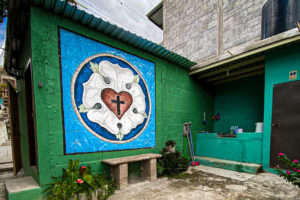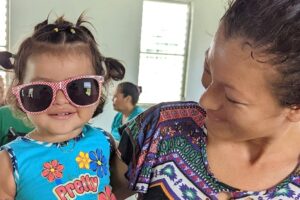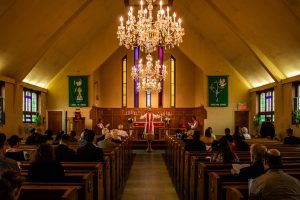Above Photo: Street signs in Mayagüez Photo credit: Johanna Heidorn
Author Cynthia Pine is an LCMS missionary serving as associate business manager for the Latin American & Caribbean region of the LCMS Office of International Mission, based in Santiago, Dominican Republic. She has been sheltering in place and working remotely from a Lutheran Mercy House in Mayagüez, Puerto Rico since attending a FORO conference there eight weeks ago. Cynthia is a member of Holy Ghost Lutheran Church in Monroe, MI.
Questions arise from North American friends who learn we are serving in Latin America as Lutheran missionaries: “But aren’t all Christians there Catholic?” Well, to a large extent, yes, because the Spanish and Portuguese Crowns did a really good job of propagating the Catholic faith for hundreds of years.
Questions arise from Hispanoamericano friends who learn we are serving in their region as Lutheran missionaries: “But aren’t all Lutherans German?” Well, maybe 500 years ago, but the Lutheran Christian church has spread out of Europe and around the globe since then, primarily to North America. And as we will learn, to far reaches of Latin America.
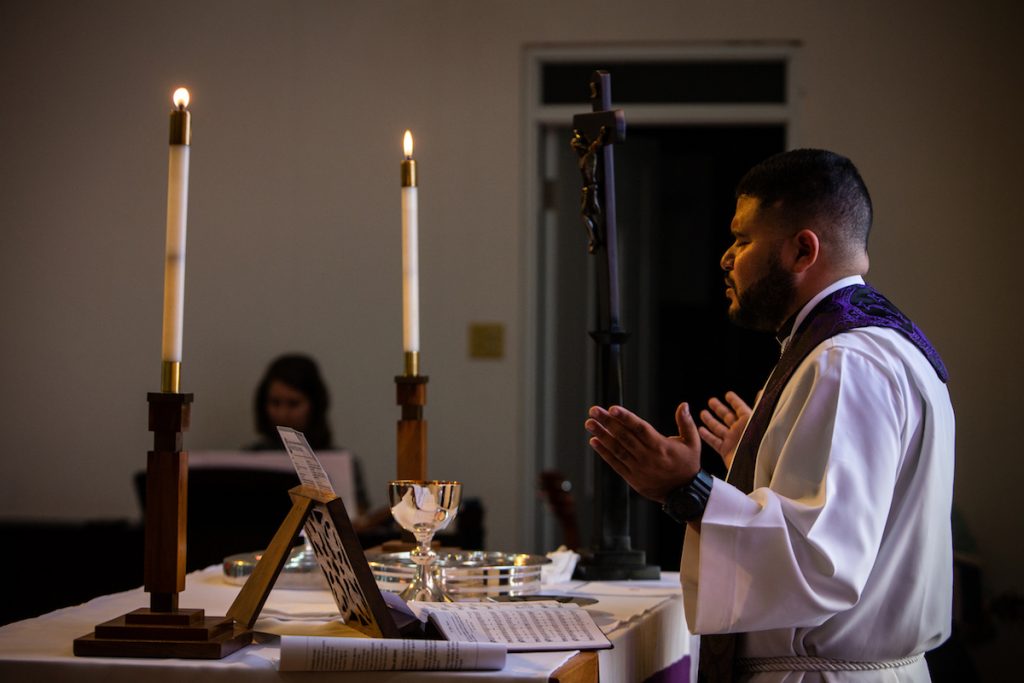
Photo: Johanna Heidorn
Our Lutheran team in Puerto Rico includes three native Spanish-speakers who ably form a bridge between the North European/North American roots of our heritage and the Hispanic, traditionally Catholic, Spanish-speaking culture there. A benefit to planting Lutheran churches in Puerto Rico stems from the fact that Puerto Ricans are somewhat more familiar with Protestant faiths – a full 25% of the population – resulting from the U.S.’s takeover of the island in 1898 and granting freedom of religion to the citizens.
Our three “fully Lutheran” and “fully Spanish-speaking” staff in Puerto Rico are talented employees whose mission every day is to spread the Gospel, plant Lutheran churches, and show mercy. They serve alongside us missionaries who already speak or are learning Spanish as a second (or third) language.
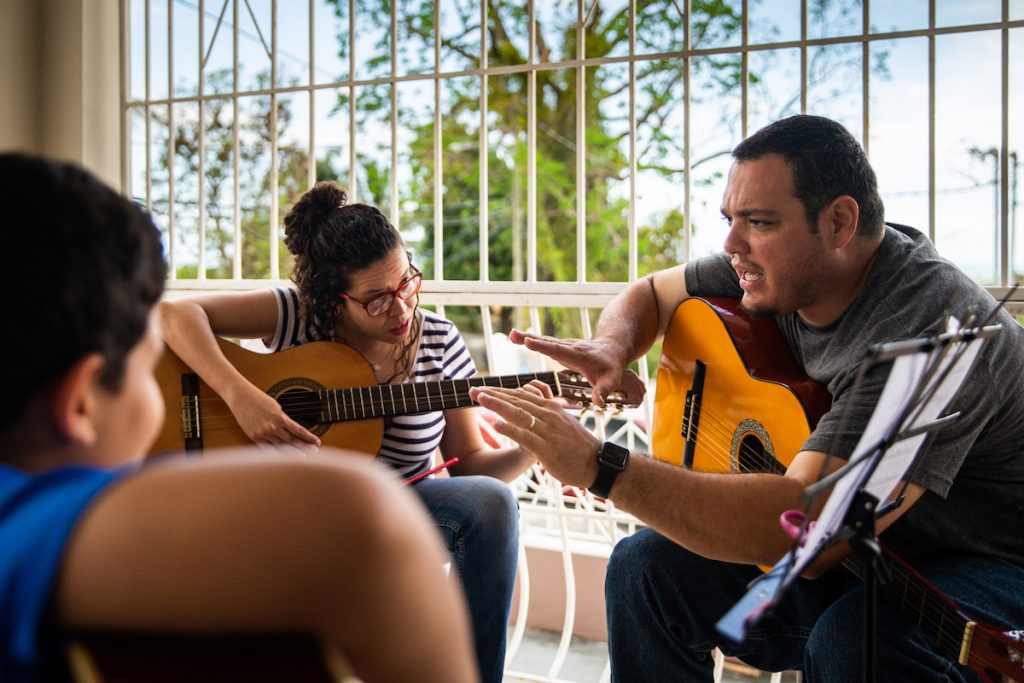
Photo: Johanna Heidorn
At the age of 13, William knew he had found his church home when he attended youth group movie nights on Tuesdays, at the Lutheran church right down the street from his home in Mayagüez. “This one was friendly and welcoming,” he recalled, “and the message they taught was that Jesus died on the cross for me. I only needed to believe to be saved. No rules.” He became close to the pastor’s family and never looked back.
This one was friendly and welcoming, and the message they taught was that Jesus died on the cross for me. I only needed to believe to be saved. No rules.
William Torres
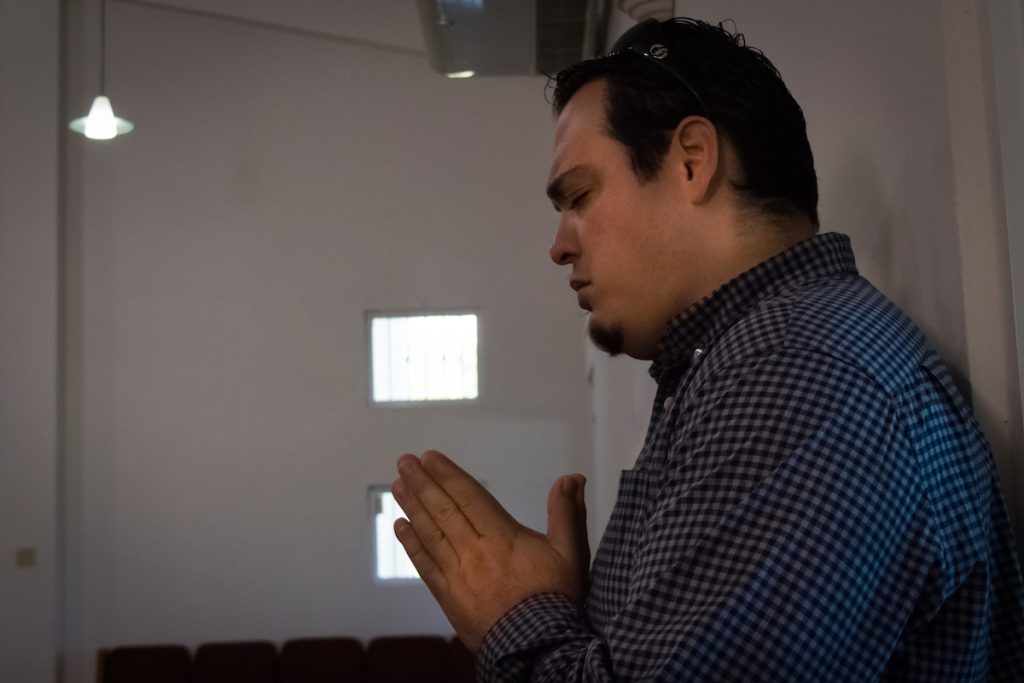
William Torres praying
Photo: Jana Inglehart
William went to college in Puerto Rico to be an I.T. specialist, a computer science major. As he explained, at the time he didn’t know how relationship-oriented he was. When he became aware of his ability to engage total strangers and his passion to share his faith, it was an easy transition for him to work in ministry. In his words, “I learned I like people and I like to listen.” His computer acumen is not wasted: William has been helping the churches in Mayagüez and Ponce with their online presence, a critical need as we face months of worshiping online during the Covid-19 pandemic.
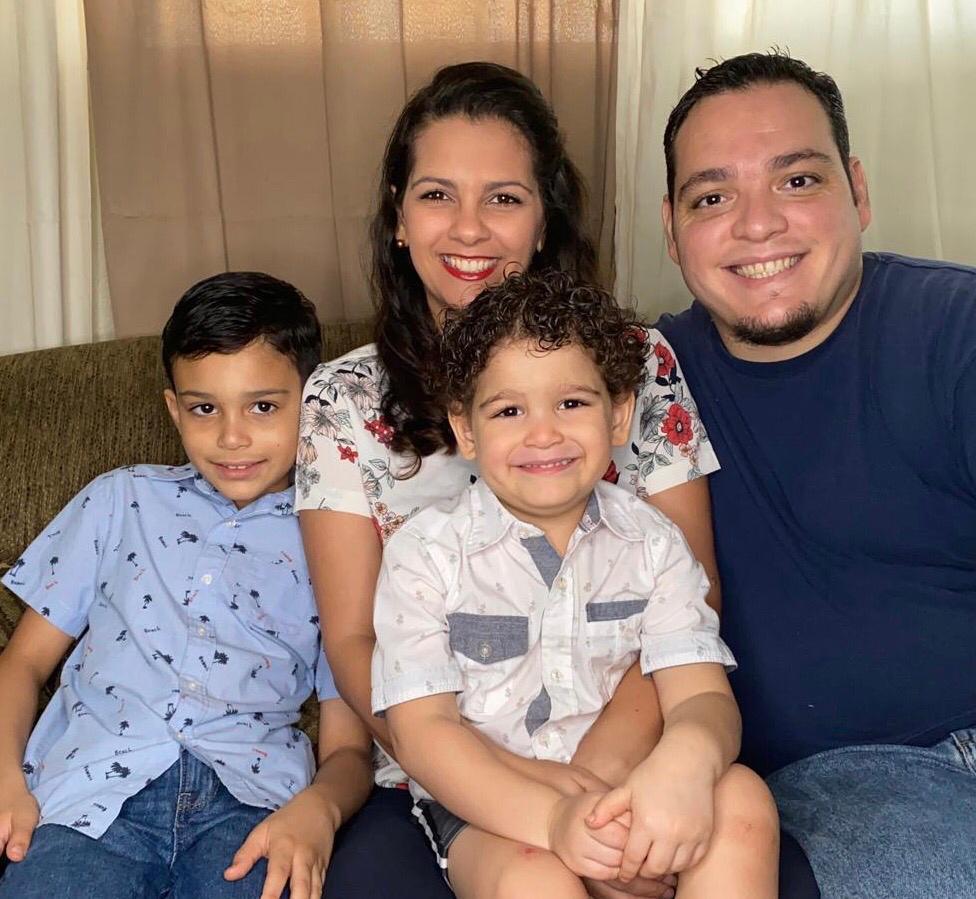
William says that the general ignorance of the Lutheran faith is an obstacle to doing mission work in Puerto Rico. The conversation needs to begin with an explanation, because “most Puerto Ricans don’t know us yet.” That’s where William’s job comes in. As Mission Evangelist with Principe de Paz Lutheran Church in Mayagüez, he can begin that conversation with strangers, reach out to other Puerto Ricans looking for hope in the midst of disaster, and give the reason for the hope he has in Christ’s saving message.
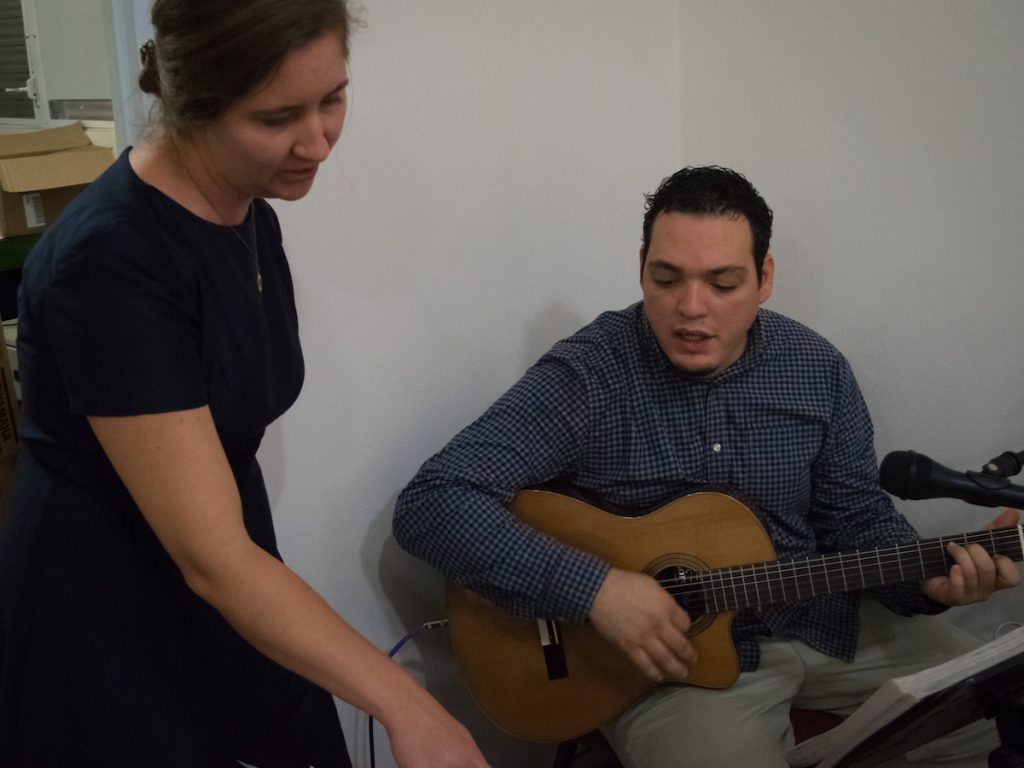
Photo: Jana Inglehart
Disaster Response has been a common term in use in Puerto Rico over the past 3 years, with one disaster after another hitting the island. Following Hurricane Maria in 2017 and the P.R. economic crisis of 2018, social worker Yaritza Rosa found herself working side-by-side with Pastor Gustavo Maita and Teaching Missionary Ruth Maita in the community of Maní, near Mayagüez, to address needs of people whose homes had been damaged.
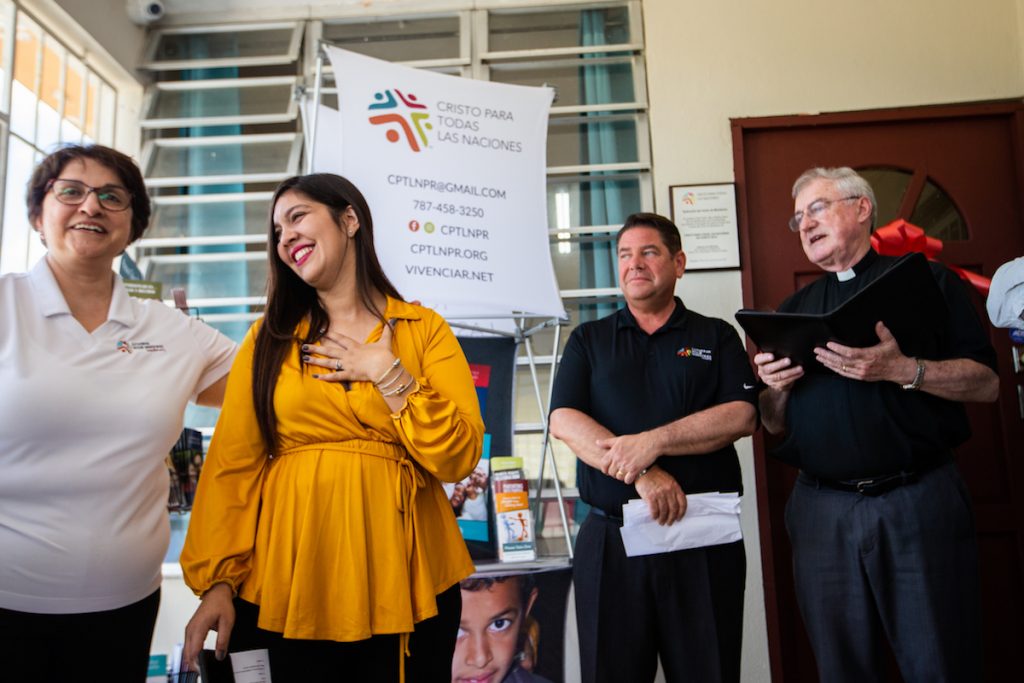
Photo: Johanna Heidorn
As the friendship between the social worker and the couple developed, Yaritza became increasingly interested in hearing about the couple’s church, Principe de Paz. Not only did Yaritza begin attending services, bringing her 5-year-old son, but when Pastor Gustavo suggested it was time for Yaritza to learn more by studying the catechism, Yaritza gladly signed up to attend classes at the church. Soon Yaritza was assisting with VBS, with her son in attendance. About this time, Lutheran Hour Ministries (LHM) also was seeking a person to help with the P.R. ministry, someone with knowledge of the psychological effects of the disasters on the Puerto Ricans. Yaritza was interviewed, and then accepted the position of coordinator for LHM (Cristo Para Todas Las Naciones, or CPTLN, in Spanish).
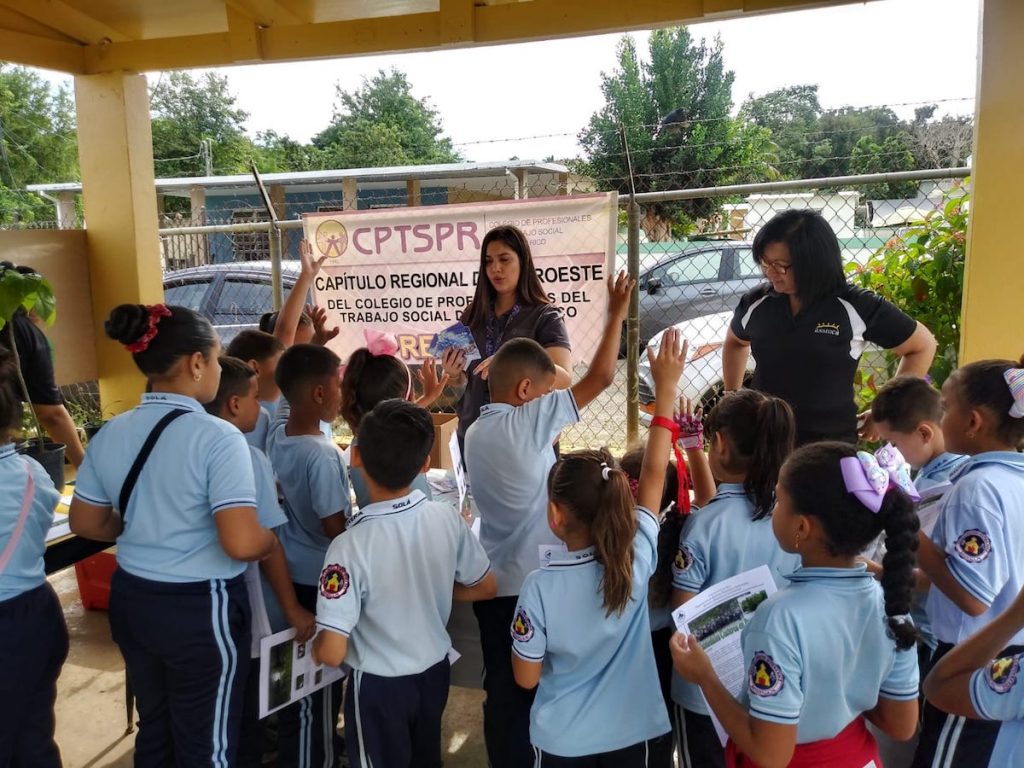
in Puerto Rico.
Photos: Rev. Anthony DiLiberto
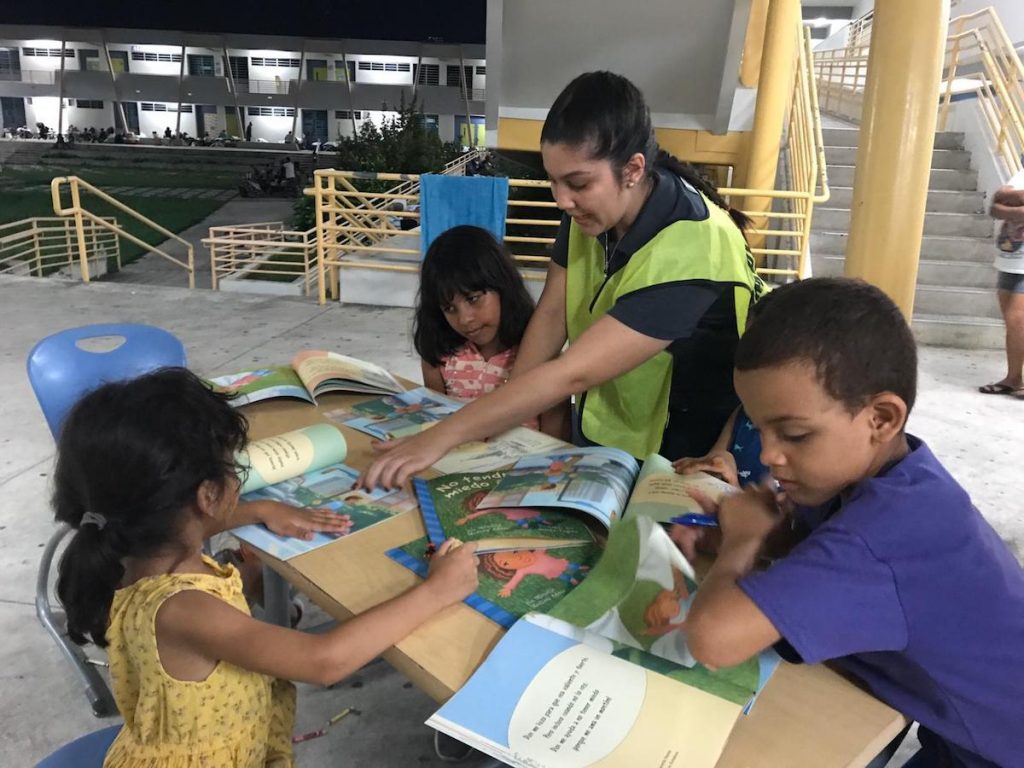
Like many Puerto Ricans, Yaritza was raised by Catholic parents. The change in her life that Yaritza sees since becoming Lutheran can be summed up in two phrases: “hope for the future” and “giving a foundation of faith to her son.” Yaritza produces three weekly radio programs for CPTLN and Facebook Live, aimed at sharing Jesus’ hope for people suffering from anxiety and depression. She makes sure every respondent to the program receives written materials, and she follows up to connect them to the services and resources available at Prince de Paz Lutheran church in Mayagüez, or at Fuente de Vida Lutheran church in Ponce. These broadcasts and materials complement the online presence of the churches, particularly in these days of social distancing and quarantines.
Becoming a pastor was a given for Gustavo Maita. Since he was very young, he was taken to Sunday school, worship services, and Lutheran school by his parents in Maturín, a small city in Venezuela. Until he was 19, he says, Sunday worship was a constant part of his life, so the dedication of his career to preaching the Gospel was a normal follow-on when he went to college. He studied in Venezuela and at Argentina’s Lutheran Seminary, eventually being ordained by the Venezuelan Lutheran Church, and now serving with their blessing, as Disaster Response Coordinator for the Lutheran churches in Ponce and Mayagüez, Puerto Rico. He assists Missionary Pastor Anthony DiLiberto with preaching and teaching responsibilities.
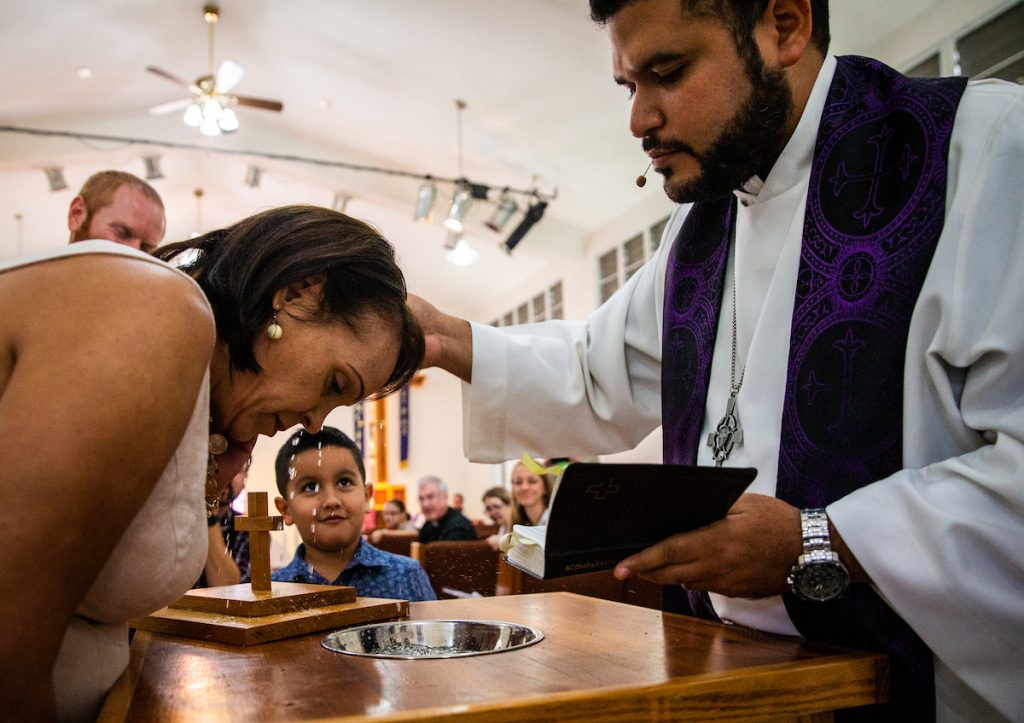
Photo: Johanna Heidorn
For Gustavo, the most challenging thing about being a Lutheran pastor in Latin America is that people don’t know what the Lutheran Christian faith is: he is routinely asked if it is a German faith. He says there are enough similarities with the Catholic faith, at least outwardly, that people are curious. From there, the work is easy. Justification is the concept that attracts them to the church. Salvation through faith and not through works is something Pastor Maita does not grow tired of teaching.
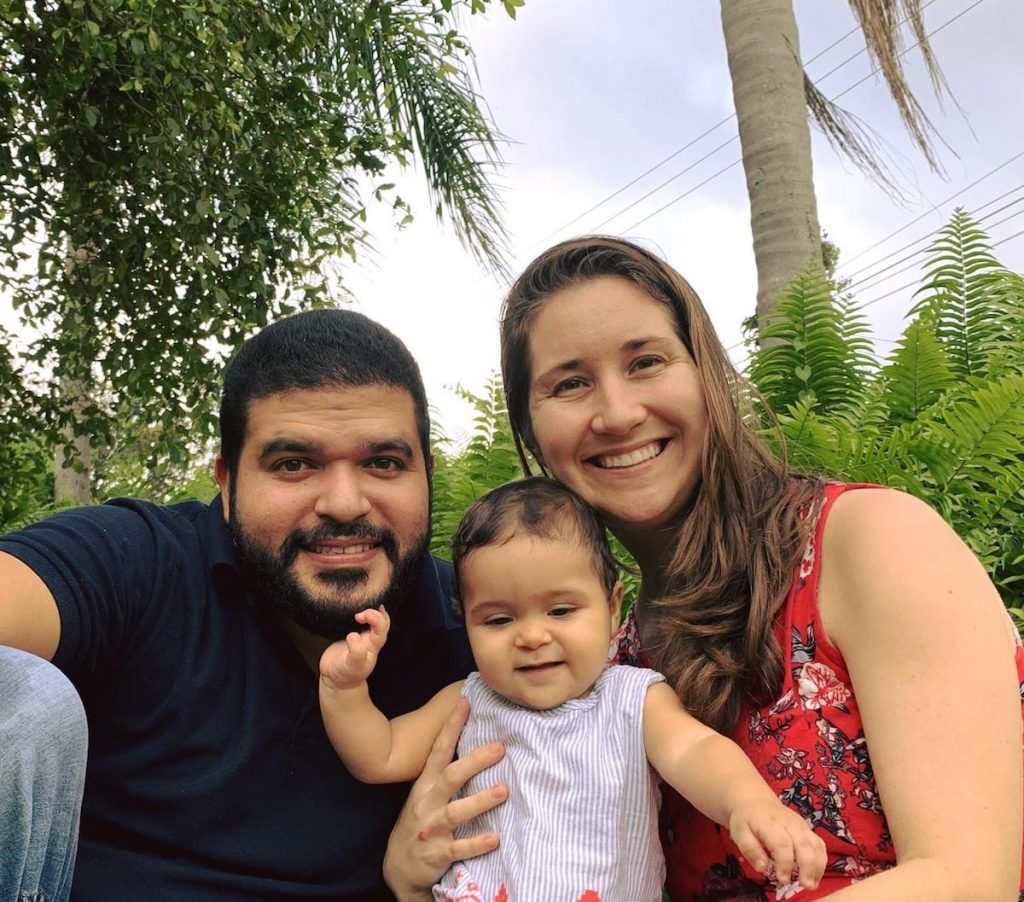
Photo: Rev. Gustavo Maita
Gustavo’s first language is Spanish, so it is interesting to hear him talk about the “culture shock” he has experienced living in Puerto Rico. The P.R. population here often assumes he is one of them until they hear him speak. His accent is distinctly Venezuelan! Other changes that have been challenging for him are understanding the P.R. sense of timing. Appointments don’t always, or even frequently, occur at the agreed-on time. Foods here are different, too. Gustavo has learned to de-stress by enjoying time with his family, cooking (he learned to barbecue in Argentina), and doing a variety of handyman projects. Going with the flow has helped him enjoy being in Puerto Rico. Gustavo and his missionary wife, Ruth, are devoted parents of Mikhaela, 7 months old.
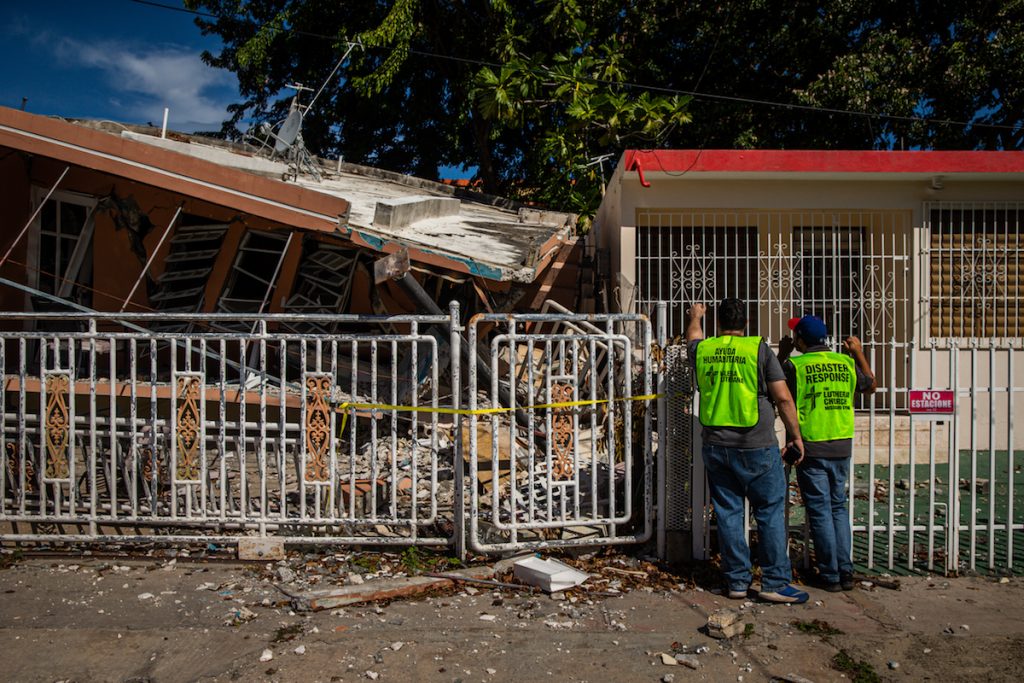
Photo: Johanna Heidorn
DISASTER UPDATE
As of this writing, the beginning of April 2020, the fourth catastrophe in as many years has just hit Puerto Rico. The island has weathered Hurricane Maria, 2017; the economic collapse in 2018-19; earthquakes measuring up to 6.4 in January 2020 and continuing; and now the Covid-19 pandemic. Pastor Maita is still waiting for “normal,” but disasters just may be the “new normal” here.
